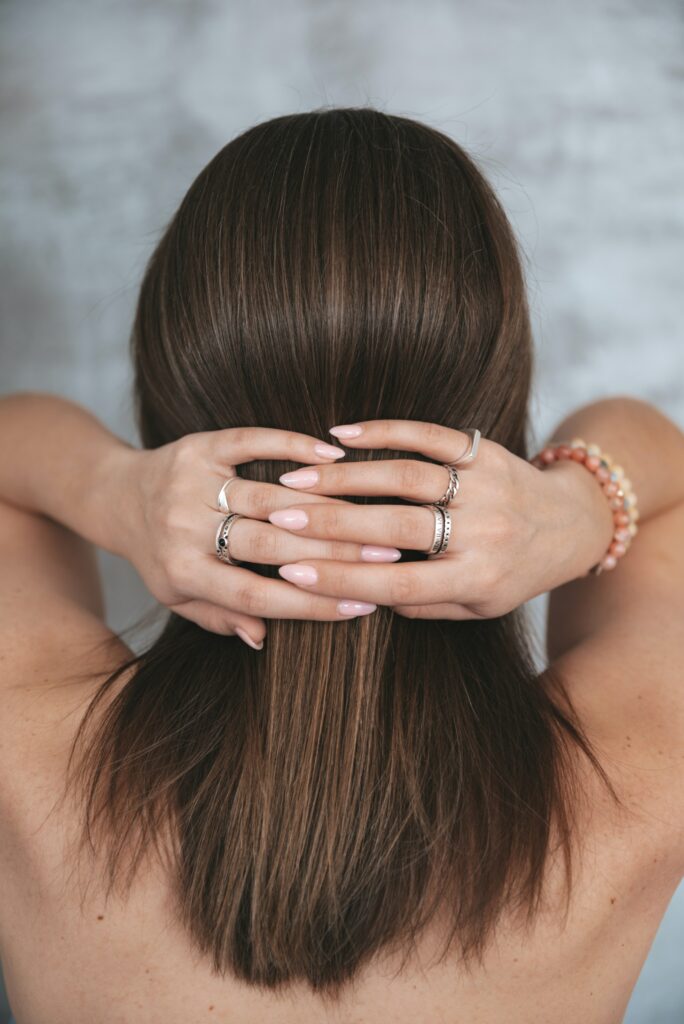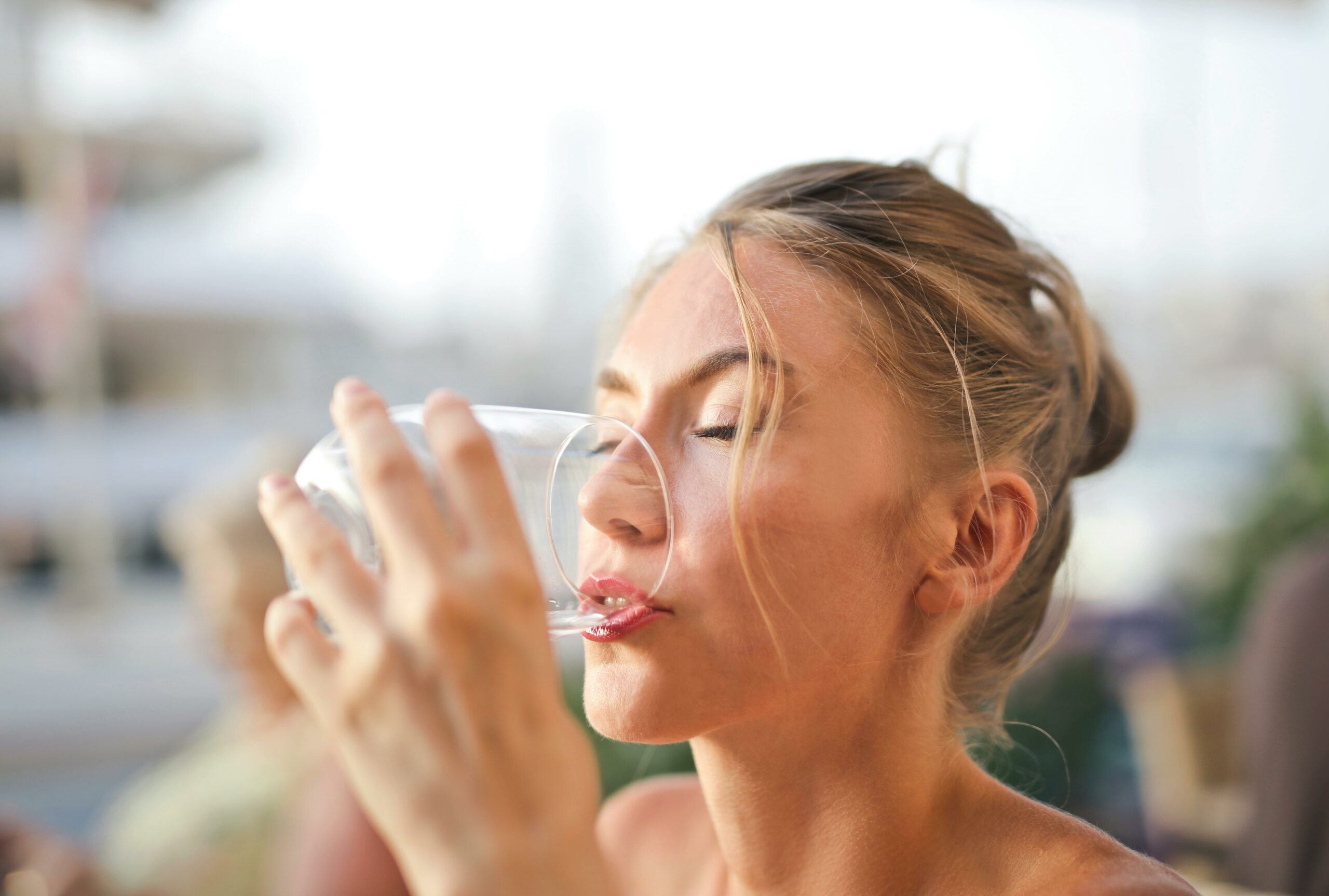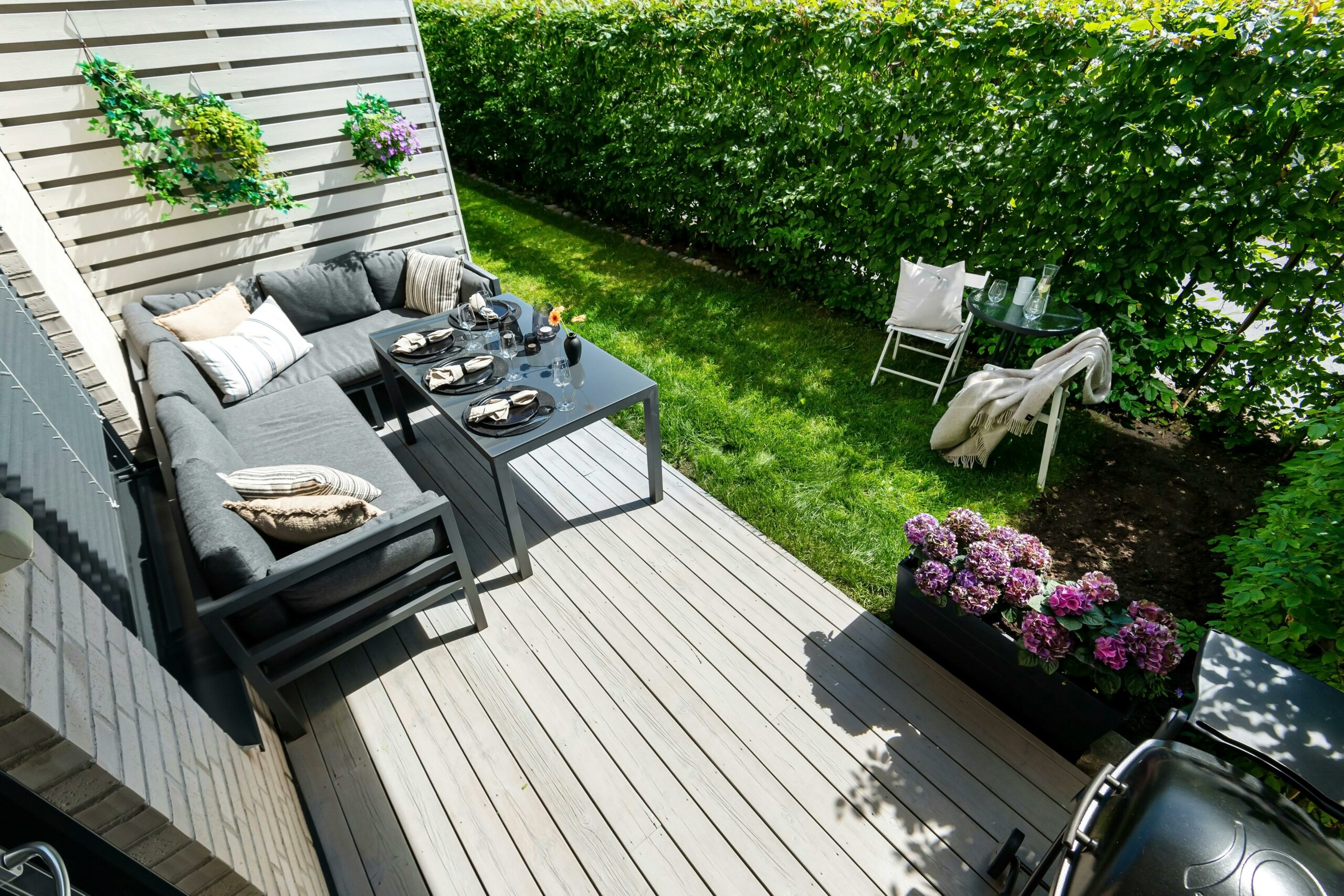Hair loss in women is more common than you might think. For some, it’s only temporary, while others may develop a long-term condition. Around 40% of women over the age of 70 experience hair loss. Of course, it can also occur at a younger age, sometimes spurred on by stress or a hormonal imbalance.
To keep your hair looking healthy and vibrant, one component you may want to pay attention to is your diet.

Essential Nutrients for Hair Growth and Health
- Vitamins – Vitamins C, E and A are essential for healthy hair growth. These vitamins are antioxidants. This means they can boost circulation within the hair follicles and can neutralise unstable free oxygen radicals which may result from UV exposure and being in a polluted environment.
You can boost your intake of antioxidants by adjusting your diet and buying hair care products that have them in them.
- Omega-3 – There are a few studies to suggest that the omega-3 quotient found in fatty fish and many hair supplements for women may promote hair growth. Fatty fish is also high in Vitamin D, which may be beneficial for hair growth.
- Minerals – Certain minerals like iron, zinc and calcium are all good for hair. Iron helps your body produce hemoglobin, a protein that helps the cells responsible for hair growth repair themselves. Zinc can support the hair growth and repair cycle too, but for other reasons. This mineral is responsible for over 100 of the body’s chemical reactions, such as cell division and cell growth. Meanwhile, calcium helps prevent dry hair, secreting the hormones that encourage it to grow.
Building a Hair-Friendly Diet
When you want to enhance the health of your hair, the first thing you might look to is your diet. To get more of the nutrients mentioned above, there are several foods you might want to add:
Spinach, red meat, dark leafy greens and peas can increase your ferritin levels due to their high iron content. Low ferritin levels sometimes cause hair shedding.
Increasing Vitamin C levels boosts your intake of antioxidants and can also help with the absorption of iron. Try amping up your intake of broccoli, kiwis, oranges, blueberries or sweet potatoes to give this a boost.
For more Vitamin E and zinc, try adding more nuts or nut butter to your diet (as long as you don’t have nut allergies). Other ways to boost Vitamin E include eating pumpkin, avocados, red bell peppers or sunflower seeds.
You can up your Vitamin A intake by consuming eggs, leafy greens, orange and yellow vegetables and fish oil.
The Impact of Hydration
The link between drinking water regularly and promoting hair health is often overlooked. Being dehydrated can put the brakes on hair growth.
So make sure you’re getting your recommended daily water intake by adding more to your diet if you need to! Frequently choosing water instead of a sugary drink is one simple way to turn this into a habit.
Water supports the work vitamins are doing for your hair, as well as directly helping keep your hair hydrated.
There are many possible causes of damaged and brittle hair or hair loss, and nutrition is often a good place to start investigating. It’s always a good idea to consult with a GP if you are in any doubt.






